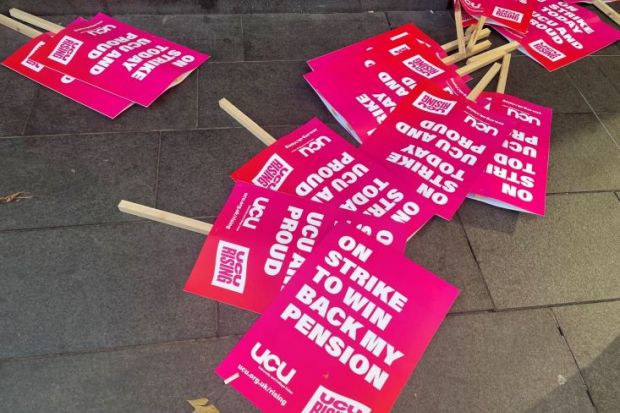A key University and College Union (UCU) committee has announced a boycott of further engagement with the union, expressing concern about its failure to tackle “entrenched racism and systemic disrespect” towards black members and staff.
The Black Members’ Standing Committee said that Times Higher Education’s report alleging a “culture of fear” within UCU offices and discrimination against ethnic minority staff had “shaken us and underscored the urgent need for change”.
In a statement provided to THE, 10 of the committee’s 12 elected members warned of “pervasive structural racism that plagues our sector and our union”.
“We feel obliged to share our disappointment in the entrenched racism and systemic disrespect within our union. For too long we have witnessed an active undermining of our voices and dismissal of our concerns within UCU and lack of meaningful representation,” the committee said.
“Our attempts to address these injustices have been met alternatingly with resistance, indifference, procedural setbacks and deliberate stalling.”
THE’s report, based on interviews with UCU employees, said that black staff members were viewed as “awkward and difficult” when they spoke out, and that racism, particularly discrimination against and victimisation of black staff, was an “open secret” at the union.
The BMSC statement said its efforts to make improvements had been “met with bureaucratic hurdles and tokenistic gestures that diminish our agency and representation”, and that union leaders had “failed to honour our democratic process”.
Campus resource collection: Being black in the academy
One key concern was alleged UCU “censorship” of a BMSC statement on the situation in Gaza.
The committee said that it would halt all further engagement with the union “until genuine engagement and action is taken by the leadership and until an external investigation into UCU’s conduct is under way”.
“We demand that UCU’s management, led by general secretary Jo Grady, take decisive action to dismantle the systems of oppression that marginalise, subjugate, humiliate and silence black members and discriminate against our black sisters and brothers who work for the union,” the committee said.
“We have shared our deep concerns over our poor treatment informally numerous times and formally at many meetings as well as eventually through complaint procedures. Alas, all in vain. Our voices remain unheard and treated as unwanted.”
Writing in THE, Dr Grady acknowledged that black staff – especially women – “too often feel undervalued and discouraged, isolated and unable to approach or challenge their managers”.
But she said that UCU’s “commitment to equality is unwavering, and we will not stop until staff and members in every branch, every department and every team feel that they are treated fairly and equally”.
Responding to the BMSC statement, a union spokesman said that the committee had a “vital role” to play in advising UCU’s action tackling racism.
“It is clear from this statement that we have work to do to ensure members of the committee feel supported and listened to, and to navigate some of the procedural and operational challenges which have undermined confidence,” the spokesman said. “We are ready to engage with the committee on these points to find a way forward.”

